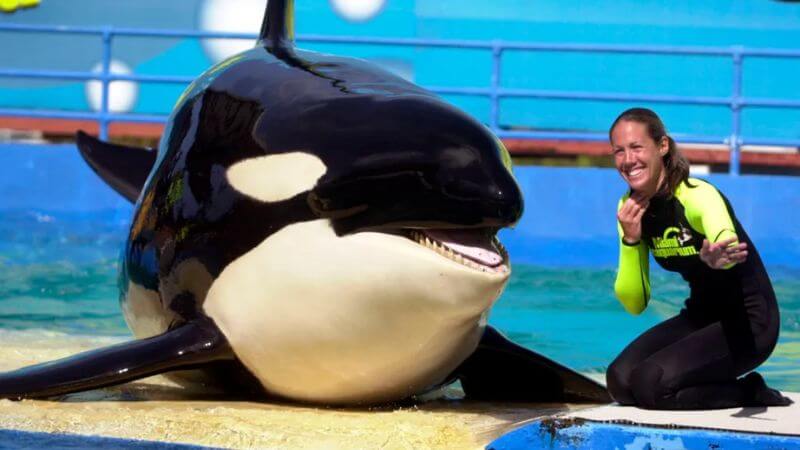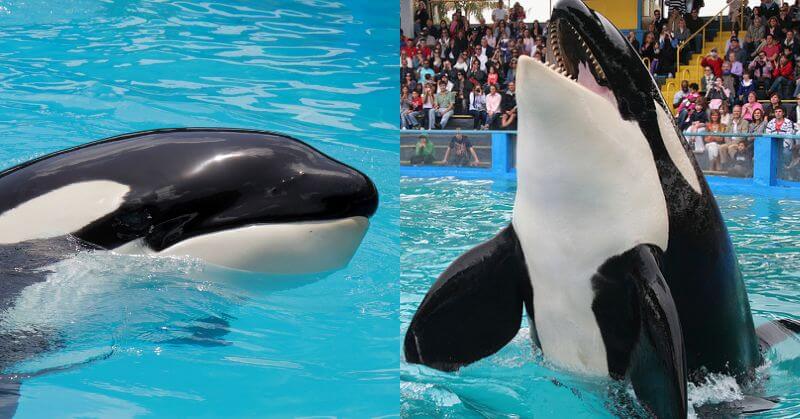Lolita was a captive orca whale performing for over half a century at the Miami Seaquarium. She was captured 1970 off the coast of Washington state and was the last surviving orca from the capture era. Continue reading to know more about the whale.
Why Was Lolita Under Controversy?


Lolita’s captivity has been controversial for many years, with animal rights activists calling for her release to the sea in her native waters. Lolita’s tank at the Miami Seaquarium was only 80 feet long and 20 feet deep, which is far smaller than the minimum tank size recommended by the Animal Welfare Act. She was also kept alone, unnatural for orcas, highly social animals. These conditions raised concerns about Lolita’s welfare and the ethics of keeping marine mammals in captivity.
Lolita’s Death Reignited The Debate
In her last years, Lolita struggled with chronic health problems. Recently, she died of renal disease on August 18, 2023. The Miami Seaquarium stated that Lolita had received the best possible medical care. But animal rights groups criticized the conditions of her captivity. Lolita’s death has reignited the debate over the ethics of keeping orcas and other marine mammals in captivity.
While some argue that captivity can benefit research and education, others say it is cruel and unnecessary. The controversy surrounding Lolita’s captivity and death highlights the need for continued discussion and action.
Was The Whale Retired?
In recent years, there have been efforts to retire Lolita to a sea pen in her native waters. The Lummi Nation, a Native American tribe in Washington state, has been leading these efforts and has offered to fund the construction of a sea pen for Lolita. However, the Miami Seaquarium has resisted these calls, arguing that Lolita is well cared for and that releasing her into the wild would be dangerous. Lolita’s death is a reminder of the long-lasting impact of captivity on marine mammals. And the need for better protection of these animals in the wild. It is also a call to action for continued efforts to improve the welfare of captive marine mammals. Further, to find alternatives to keeping them in captivity.
What do you think about the topic discussed above? Do let us know your thoughts in the comments section below. Stay tuned for further updates.
Follow Us: Facebook | Instagram | Twitter |
Youtube | Pinterest | Google News |
Entertales is on YouTube; click here to subscribe for the latest videos and updates.

